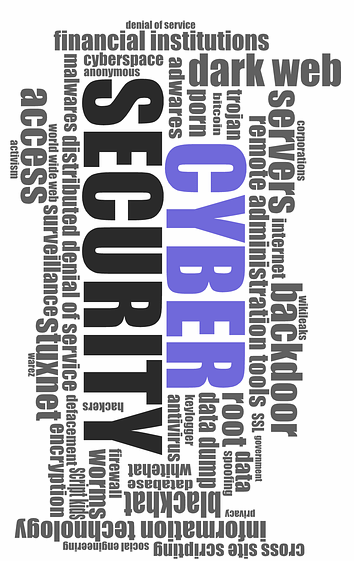Online businesses have already seen the importance of having plenty of cybersecurity. Cybersecurity ensures that your site is protected online, especially in today’s world where technology is more advanced.
But, with that said, misinformation on cybersecurity can confuse even the most sophisticated and tech-savvy CEO or management. That’s why we’re here to unmask 10 of the most common myths in cybersecurity, so that you know the truth! 
One of the worst mistakes to make with cybersecurity is to believe that if you’re a small business, you’ll be safe from cyberattacks. This is a dangerous ideology, because cyber crime never discriminates. Whether you’re a big business, or a small one, cyber criminals can still hack into your business at anytime, anywhere.
Data might be filled with letters and numbers that may seem confusing to you at first glance; however, data is what structures and maintains your business. Such data may include things for:
Even if your business isn’t making enough money, your data is still valuable.
Say you sign up for a social media platform (i.e., Facebook, Instagram, etc.). You sign their Terms and Conditions, and your right to privacy is gone. Now, these platforms can build a demographic profile of you, and then turn around and sell your information to marketers.
The truth is, antivirus or antimalware aren’t perfect. In other words, there’s no cure to being safe 100% from all cyberattacks. In fact, such software needs a large database filled with information on all existing malware and viruses to date.
In short, those software are your first line of defense against cyberattacks. You may want to look into adding extra layers of security to get the most out of the antivirus and antimalware software.
Phishing scams can easily fool you, because they pretend to be something that they’re not. Phishing is when scammers send you a message or email saying that they “have your information,” and that if you don’t pay up, they’ll release photos and videos of some of your private moments.
Therefore, change your password, and report any suspicious emails that you get. Companies like Apple tell their customers that if they’ve received a suspicious email with their logo on it, to report it and delete it right away.
Wrong.
Passwords – no matter how long or short they are, or how many special characters you use – are ALWAYS vulnerable to cyberattacks. That’s why it’s important to change your passwords regularly.
Hackers are often characterized by the media as hooded figures hunched over a computer. However, in truth, many hackers can be just regular people that work out in the open. Plus, hackers aren’t always lone wolves, but organizations as well.
When you visit mainstream sites, you still need to be careful. Sites like social media apps are still vulnerable to things like data breaches. Therefore, having security software when you visit such sites is still crucial. Every social media manager should use trusted VPN to stay safe online.
It doesn’t matter what industry you’re in. Cyber criminals will profit off of ANY industry that they can get their hands on. It’s not just the tech and financial industries taking the abuse from hackers.
You can never rely on having a long, complicated password to keep you safe. With cyber criminals now using speedy programs to run so many password combinations – including long ones – having a long and complex password won’t shield you from any threats online. That’s why businesses are being encouraged to enable two-factor authentication, so that it adds extra layers into their security.
Finally, using your own device can be just as bad as not having any security software. While bringing your own device (BYOD) is cost effective, it still comes with risks. With many devices connecting to a network, it takes only one device to be compromised by hackers, and infiltrate the entire network.
So, there you have it!
Now that you know the truth about these 10 myths, you can ensure that your company or website is fully secure, or else you’ll run the risk of believing misinformation … and possibly get hacked. Don’t let that be you!
Author's Bio
Madeline Miller is a digital writer at RatedWriting and Studydemic. She enjoys food blogging and travelling the countryside in her spare time.